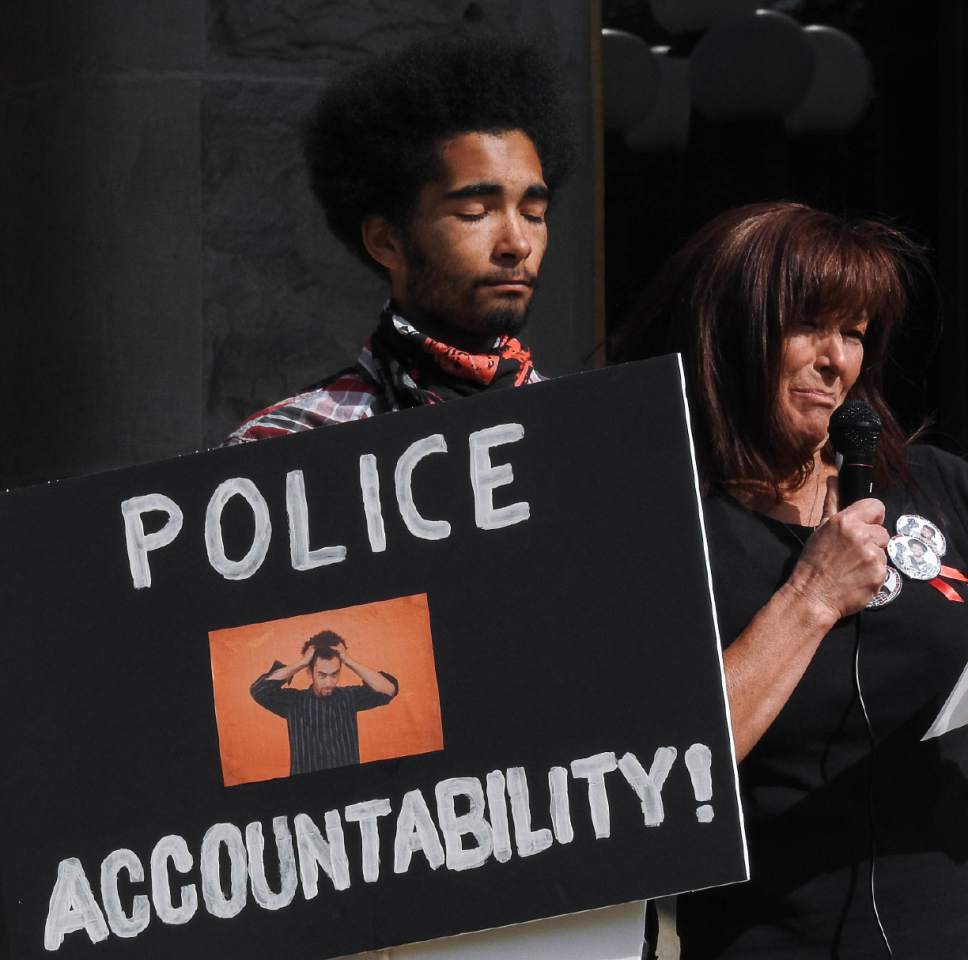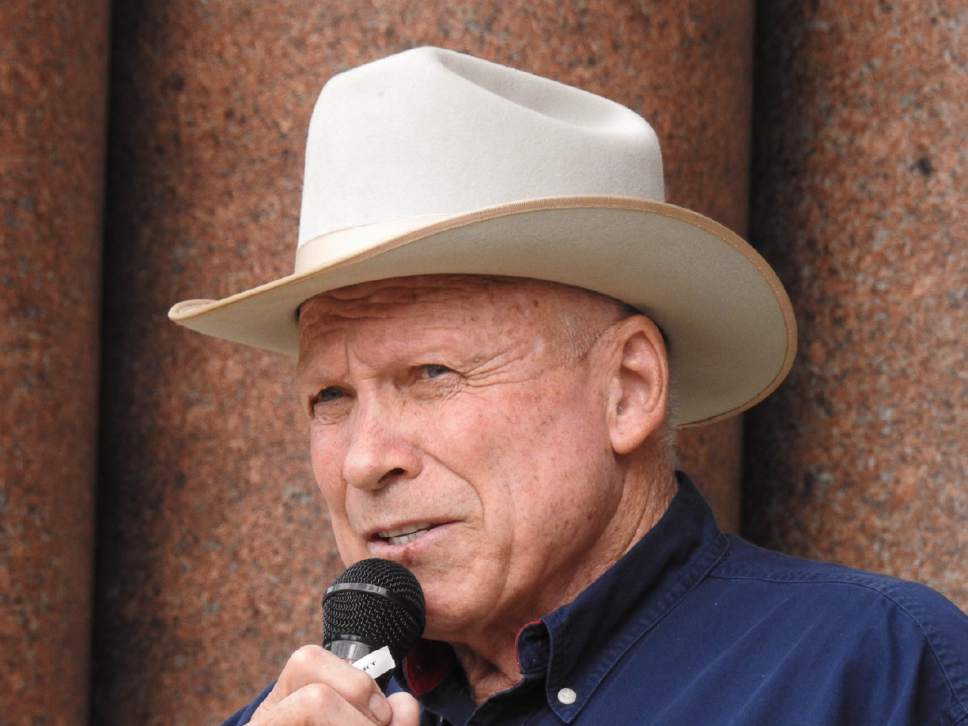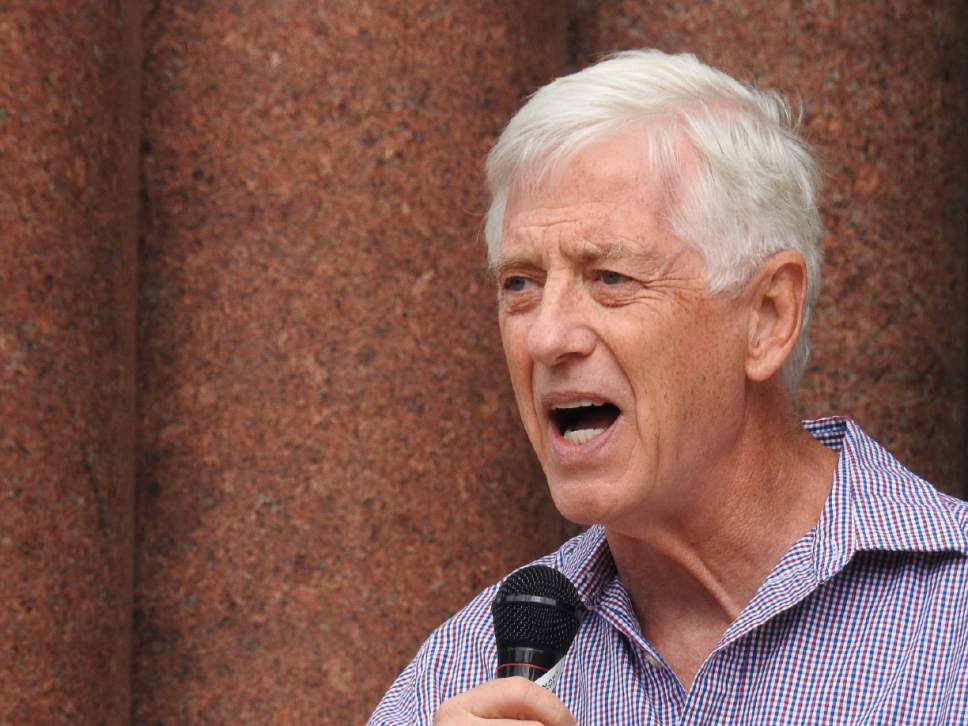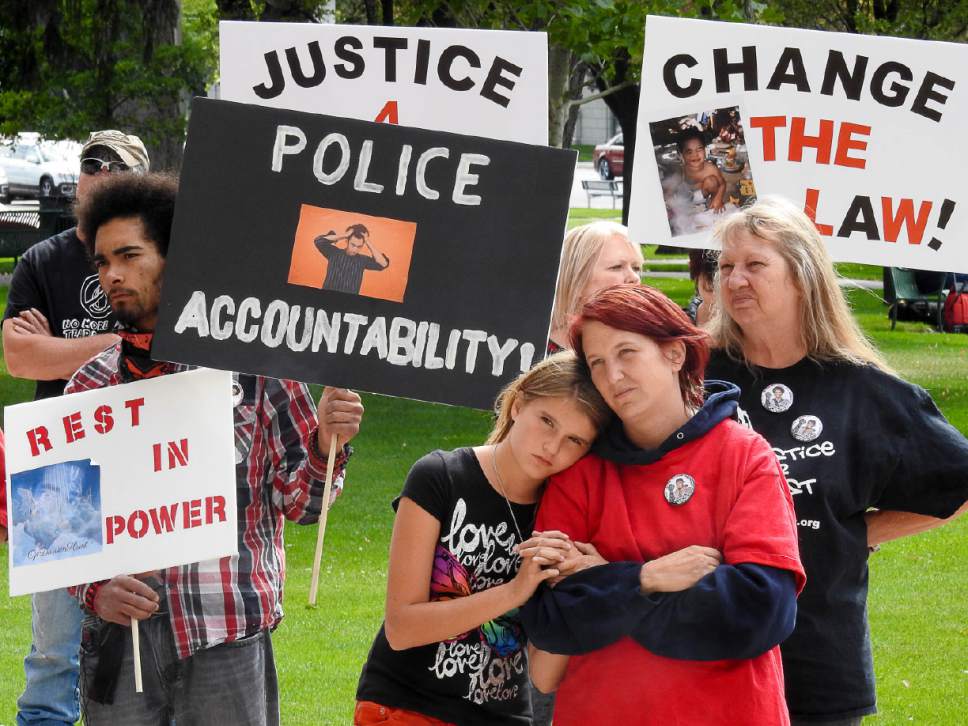This is an archived article that was published on sltrib.com in 2015, and information in the article may be outdated. It is provided only for personal research purposes and may not be reprinted.
Following an officer-involved shooting, it is the police department that gets to decide what information is released and it often begins with the most negative facts about the suspect. Then the laws are designed to give officers the benefit of the doubt, limiting their exposure to prosecution and even lawsuits.
William "Dub" Lawrence says this exacerbates the anger and animosity felt by family members of those killed by police. And he should know.
Lawrence is a former police officer and Davis County sheriff who witnessed a police assault on his suicidal son-in-law in 2008.
Following a 12-hour standoff, the same SWAT team Lawrence created in 1975, repeatedly shot Brian Wood with a Taser while he was barricaded in his truck, then hit him with pepper balls and ultimately a sniper shot him in the face. Police say they reacted to Wood firing a gun at them. Lawrence said that is a lie.
"I was there. I witnessed it," said the retired lawman, 70, who spent years collecting evidence and video of the confrontation to back up his assertions. He believes his son-in-law should have been arrested and charged, but he says police overreacted.
Wood's death devastated Lawrence and has led him to become deeply critical of what he sees as the over militarization of police that has led to more violence.
"Officers have become bullies with badges and guns who kill with immunity and there is nothing you can do about it," he said.
Lawrence was among the relatives of people killed by police who shared their stories Saturday at the "No More Tears" rally in front of City Hall in Salt Lake City, an event meant to show solidarity and help families grieve. About 70 people gathered across the street from the district courthouse, many carrying signs honoring their lost loved ones.
Among the speakers was Anna Brower, with the ACLU of Utah, who said police can't expect respect when treating the public as "enemy combatants." Other speakers included former Salt Lake City Mayor Rocky Anderson and Andrew McCullough, a Utah Libertarian Party leader.
Lawrence urged those in attendance to come to the Tower Theater on Sept. 25 for a screening of a new documentary that focuses on five such Utah cases, including the deaths of Danielle Willard and Matthew David Stewart. "Peace Officer" won the Grand Jury award at the South by Southwest Film Festival.
Lawrence hopes that the film will push viewers to change a "broken system."
He knows the film and rallies like that held Saturday are likely to leave the law enforcement community defensive. He insists he's not anti-cop, saying some officers are so professional that it can be a pleasure to get a ticket. Still, he sees the solution coming from elected officials not from within police departments and in this arena he gives Utah some credit.
The state Legislature passed a law requiring the tracking of SWAT deployments and has pushed law enforcement to adopt body cameras. Lawrence said he wants to see some changes to police immunity laws and believes he has support of state lawmakers on that one, too.
"Utah is leading out among other states and setting a proper example," said Lawrence, who after ending his military career worked as a Bountiful police officer for three years before becoming a sheriff.
But this group of activists believe more can be done. They are inviting the public to the Salt Lake City Library at 2 p.m. on Saturday to identify potential legal and policy changes on the city and state level.
Twitter: @mattcanham









